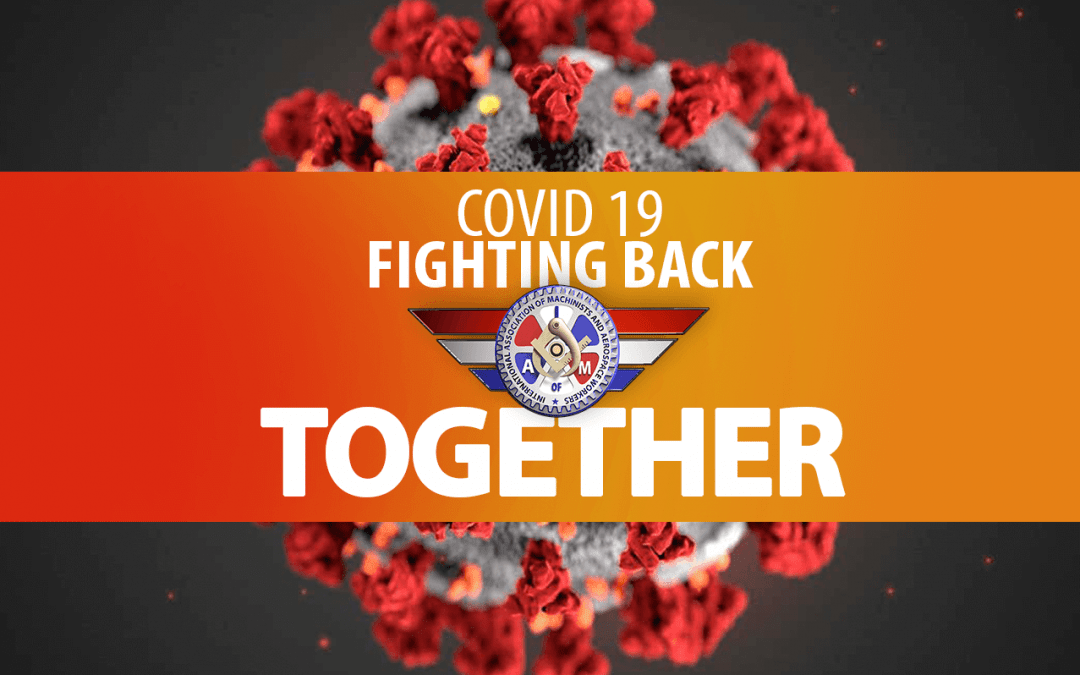
by Eric Price | Mar 26, 2020 | Airlines, American, COVID, EAP, Featured, Front Page, Hawaiian, Home, Home, Philippine, Safety, Spirit, Uncategorized, United
Sisters and Brothers, Working almost around the clock since Monday, the leadership of the House of Representatives and the US Senate engaged in negotiations to produce a historic $2 trillion stimulus bill that provides significant relief to our nation’s health care...
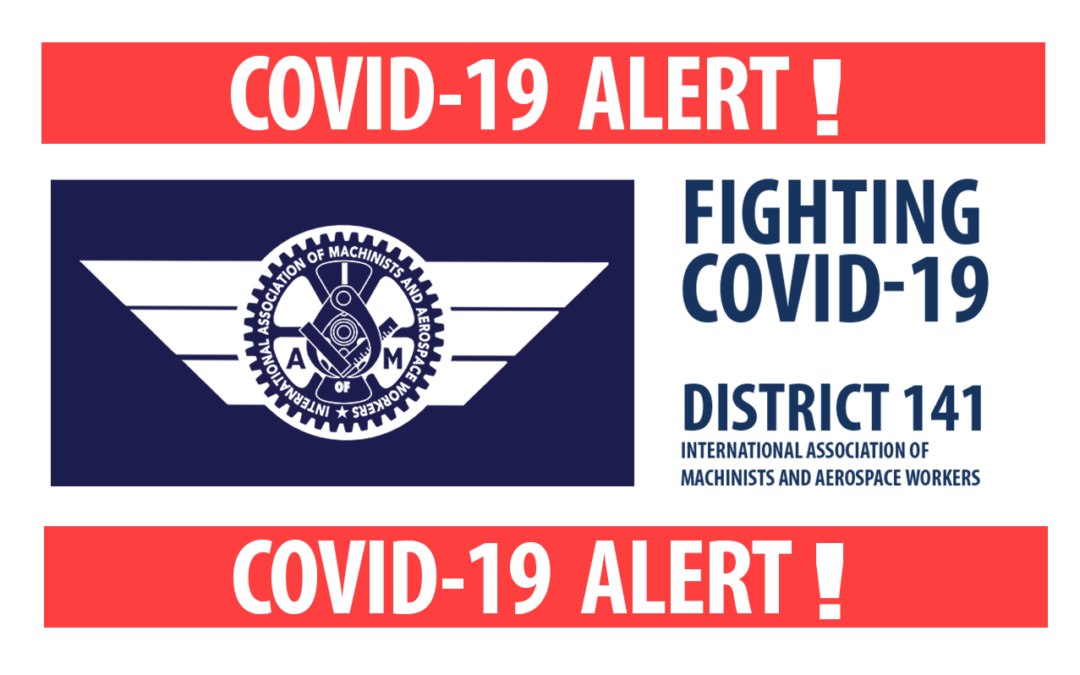
by Eric Price | Mar 25, 2020 | Airlines, American, COVID, Hawaiian, Home, Home, Philippine, Spirit, Uncategorized, United
The federal aid package presented by the Senate, which is expected to be voted on shortly contains a huge problem that could affect every airline worker in the United States. The proposed legislation currently has NO protection against opening up existing collective...
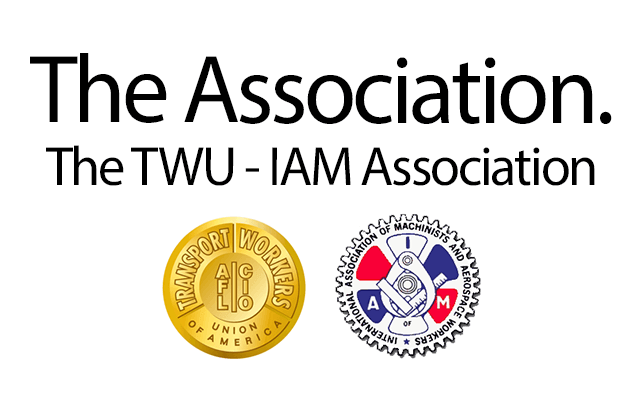
by Eric Price | Mar 20, 2020 | Featured, Front Page, Home, Home, The Association, Uncategorized
The TWU-IAM Association /// March 19, 2020 Due to worsening circumstances surrounding the Coronavirus crisis in the United States, the TWU/IAM Association leadership has determined to make a change in the voting procedures for the ratification of the tentative Joint...
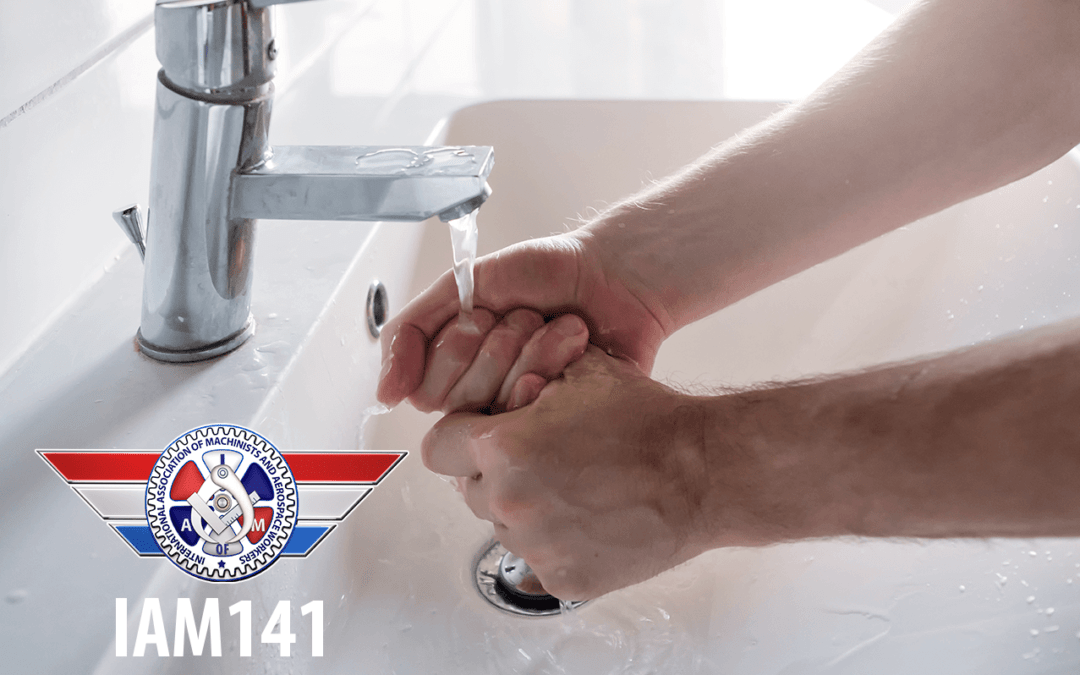
by Eric Price | Mar 19, 2020 | Community Service Page, COVID, EAP, Featured, Front Page, Helping Hands, Home, Home, Uncategorized
EAP Peer Coordinators: Coronavirus has changed everything. All Airlines have experienced a severe drop off of load factors associated with reduced flying due to governmental flying restrictions. This special edition addresses the situation by looking at how to...
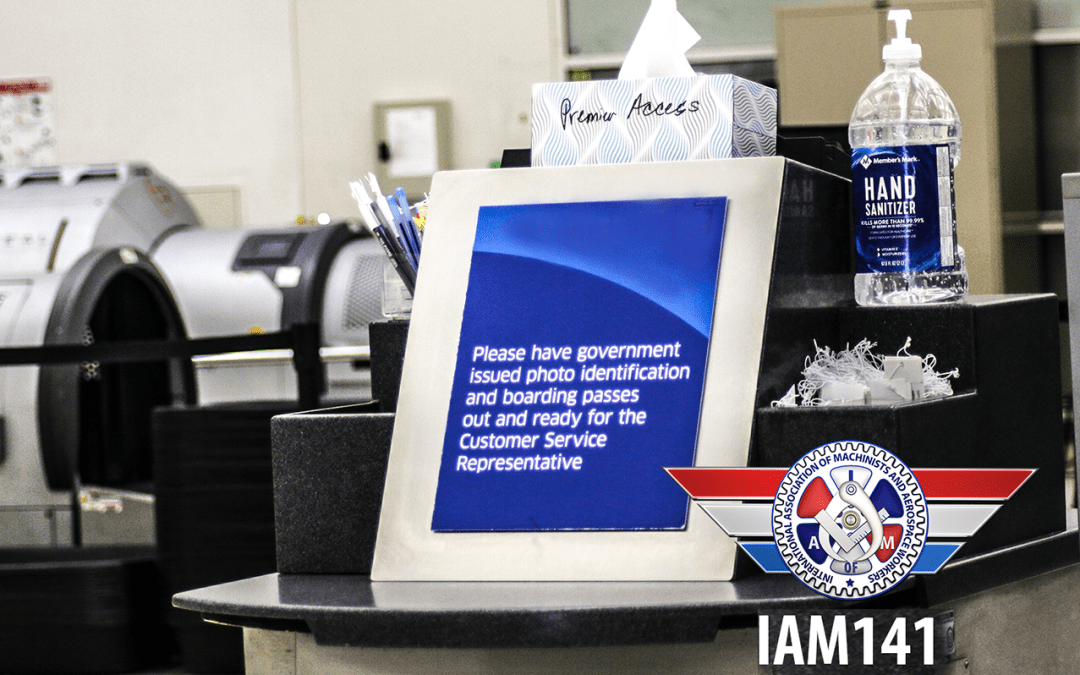
by Eric Price | Mar 18, 2020 | Airlines, American, Community Service Page, COVID, Featured, Front Page, Hawaiian, Home, Home, MNPL, Organizing, Philippine, Safety, Safety, Spirit, Uncategorized, United
IAMAW District 141 ///// Sisters and Brothers, In recent weeks, many of you have contacted your local union representatives, Assistant General Chairpersons or me directly to express your fears of possible pay cuts, furloughs or the likelihood of your carrier going...
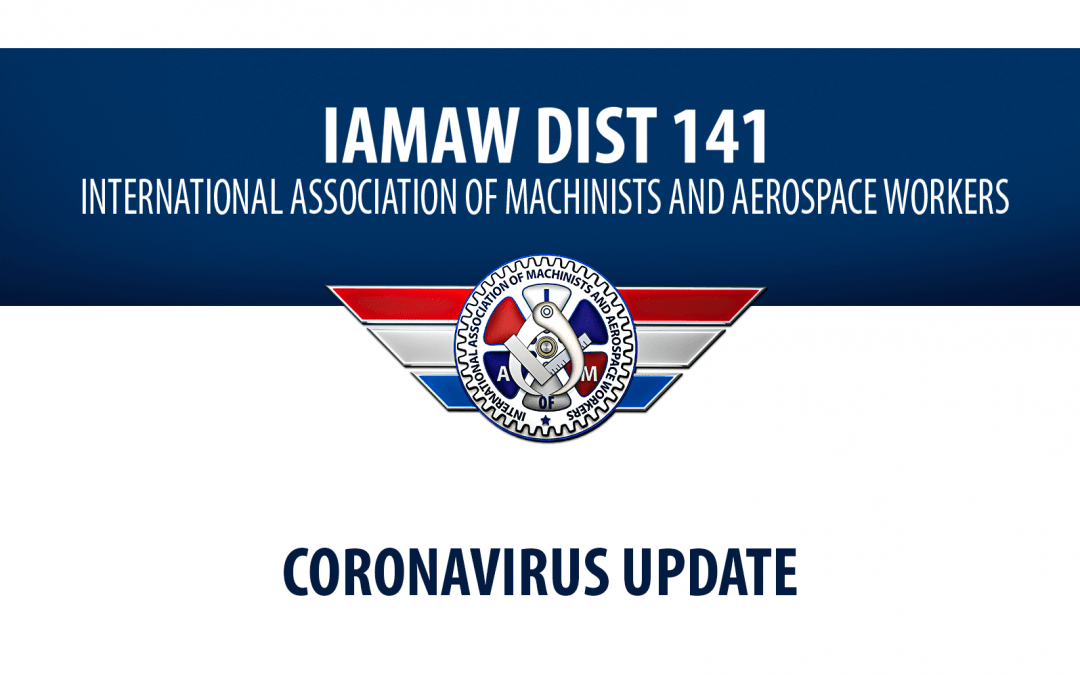
by Eric Price | Mar 16, 2020 | Airlines, Community Service Page, COVID, EAP, Education Class, Featured, Front Page, Home, Home, MNPL, Pinned Post, Safety, Safety, Uncategorized, United
Dear United Member, I’m sure by now most of you have had a chance to read the communication put out by Oscar Munoz and Scott Kirby last night. I want to start off by commending both men and their teams for keeping the IAM completely informed with the dire financial...







